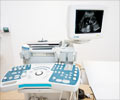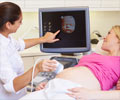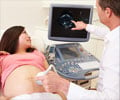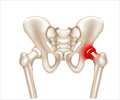Highlights
- Ultrasound scans use high-frequency sound waves to produce images of internal body structures.
- Prolonged prenatal exposure to ultrasound waves can reduce the bone density and strength.
- Scientists advice on restricting the use of ultrasound scans only to high-risk pregnancies and other conditions
The ultrasound image is produced by the reflection of the sound waves. The imaging has been used for more than 20 years and are considered to be safe.
The United States Food and Drug Administration, however, had cautioned the use of ultrasound scans for non-essential purposes. The ultrasound waves were found to carry energy that heats the tissue and produce small gas bubbles in the body fluids or tissues. The long-term effects of ultrasound scans are unknown.
A research team from the Universiti Teknologi MARA in Malaysia wanted to study the potential side effects of the ultrasound scans because of the increasing multiple ultrasounds that are carried throughout their pregnancy.
Research Study
The study was carried out on 22 pregnant rabbits which had given birth to 142 young rabbits. Out of the total 22 rabbits, four received no ultrasounds, while the remaining were exposed to ultrasounds for 30 minutes, 60 minutes or 90 minutes during pregnancy.
Study Findings
Scientists analyzed the thighbones of the young rabbits once within five months. Their findings showed that bunnies in the womb who were exposed to ultrasound had weaker bones when compared to those who were not exposed.
Some variations between exposure amount and timing of the ultrasound found that, in the first trimester of pregnancy, the bones were not rigid, and were able to handle the ultrasound heat.
But, during the second and the third trimesters, the bones were ossified and therefore had a huge impact. The young rabbits were not able to repair the damage, and the bones showed decreased density and greater porosity than the control subjects.
To conclude, as the rabbit bones are similar to the human bones, the research study stated that it would be safe to restrict the exposure of ultrasounds only to high-risk pregnancies and other necessary situations.
Ultrasound Scans
A trained healthcare professional called sonographer will be able to perform an ultrasound scan. The high-frequency sound waves are capable of creating a picture of the baby inside the womb. It takes about 20 minutes to perform an ultrasound scan.
Three types of ultrasound scans during pregnancy:
- Dating Scan - Confirms due date of the delivery
- Nuchal Translucency Scan - Detects chromosomal abnormality in the fetus
- Anomaly Scan - Details and observes the position of the placenta and the umbilical cord
- Che Isa, I. N.*, Md Dom, S., Abdul Razak, H. R. and Hashim, U. F. et.al., One-Time Prolonged Ultrasound Exposure during Early PregnancyAffects Bone Strength in Young Aged Oryctolagus Cuniculus, Pertanika Journal of Science & Technology (2017);
- Information on Ultrasound Scan - ( http://www.cancerresearchuk.org/about-cancer/cancers-in-general/tests/ultrasound-scan)
- Ultrasound scan - (http://www.pregnancybirthbaby.org.au/ultrasound-scan)
Source-Medindia













